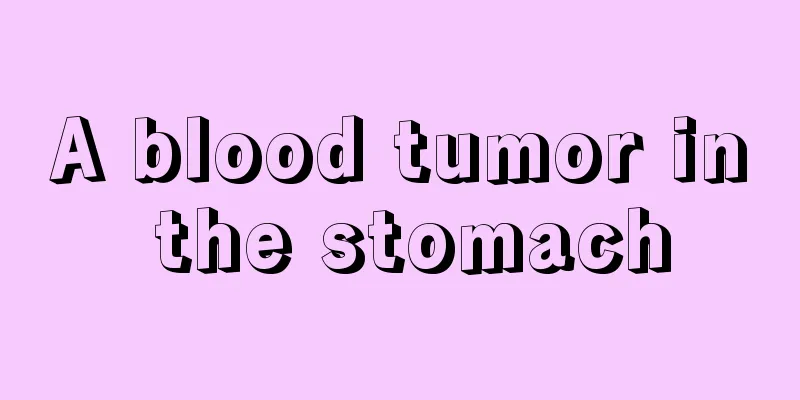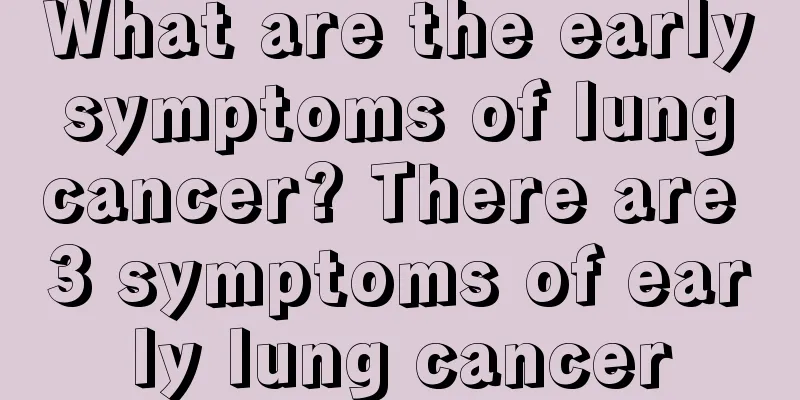What are the symptoms of rectal lesions?

|
The rectum is an important part of the human body. Once a lesion occurs, various adverse symptoms will appear. The most common ones are changes in bowel habits and characteristics, abdominal distension, abdominal pain, blood in the stool, anemia, etc. If these symptoms are not treated in time, more serious phenomena will occur, such as colon obstruction, intestinal perforation, etc. These two situations are very likely to be life-threatening. 1. Changes in bowel habits and characteristics Patients with rectal cancer may have more frequent bowel movements, but not much stool each time, or even no stool at all. They only excrete some mucus and blood, and have a feeling of incomplete bowel movements. 2. Abdominal distension and pain This is caused by intestinal dysfunction or intestinal obstruction. The pain is mostly concentrated in the middle and lower abdomen, mostly dull pain or bloating, and tends to gradually worsen. 3. Blood in the stool Because the lesion is close to the anus, the blood is mostly bright red or dark red, and the blood is often separated from the stool. Only when the amount of bleeding is heavy, the stool will appear brown and jam-like. Many patients with right-sided colon cancer have visible blood in their stools. This is also an early symptom of colorectal cancer. 4. Anemia When long-term chronic blood loss exceeds the body's hematopoietic compensatory function, the patient may develop anemia, an early symptom of colorectal cancer. Tumor obstruction: When the tumor grows to a considerable size or infiltrates the intestinal wall muscle layer, it can cause intestinal stenosis, shrinkage of the intestinal cavity, and obstruction of the passage of intestinal contents. 5. Colon obstruction It is one of the late complications of rectal cancer and can occur suddenly or gradually. It is mostly caused by tumor proliferation blocking the intestinal cavity or intestinal narrowing, or it can be caused by acute inflammation, congestion, edema, bleeding, etc. at the tumor site. 6. Intestinal perforation There are two types of rectal cancer complicated by perforation: perforation occurs locally in the tumor; proximal colon perforation is a complication of tumor obstruction. After perforation occurs, clinical manifestations may include diffuse peritonitis, localized peritonitis, or local abscess formation. Diffuse peritonitis is often accompanied by toxic shock and has a very high mortality rate. |
<<: What are the symptoms of consumptive disease?
>>: Will there be parasites if oysters are eaten raw?
Recommend
What are the methods to sober up?
Nowadays, people often need to drink. When they a...
Why do I get acne on my arms
During adolescence, acne may appear in many parts...
Can children with ovarian tumors be cured?
Ovarian tumor is one of the common tumor diseases...
Keratosis pilaris
There are many types of diseases. In the treatmen...
What are the hazards of industrial cleaning agents
Industrial detergents are widely used and are som...
What are the effects and functions of japonica rice
Japonica rice is a type of rice, and it actually ...
Symptoms of lung metastasis from ovarian cancer
Symptoms of ovarian cancer lung metastasis: The m...
What is the reason for increased appetite in late stage liver cancer? Introduction to treatment methods for late stage liver cancer
Patients with advanced liver cancer may experienc...
What is normal blood pressure at the age of 55
Blood pressure is an important indicator for peop...
How to drink vodka to taste good
Just like China has Moutai, Wuliangye and other l...
What is the difference between nodular goiter and thyroid nodules
Generally speaking, most thyroid nodules are beni...
How to treat edema in late stage lung cancer
Lung cancer is a lung malignant tumor with a high...
What is kidney cancer?
Kidney cancer is a disease caused by malignant tu...
How long does it take to change the dressing after anal fistula surgery
Anal fistula surgery is a very common anorectal s...
Is amenorrhea a symptom of cervical cancer?
Is amenorrhea a symptom of cervical cancer? 1. Am...









